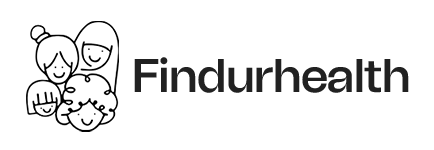
The early stages of pregnancy are a crucial and transformative time for both you and your developing baby. Have you ever wondered how the choices you make right now can shape your baby’s health and development? Proper care and nutrition during this pivotal period are not just beneficial—they are essential. These early months lay the foundation for a healthy pregnancy and a thriving baby. Ensuring that you follow the right practices and eat a well-balanced diet can significantly impact your well-being and your baby’s growth. This comprehensive guide is designed to provide you with vital information and practical tips on early pregnancy care and diet, helping you navigate this exciting journey with confidence and prepare for a healthy, smooth start to your pregnancy.
Early Pregnancy Care: Key Considerations
1. Prenatal Care
- Schedule Regular Check-ups: Begin prenatal care as soon as you confirm your pregnancy. Regular check-ups with your healthcare provider will monitor your health and your baby’s development, address any concerns, and provide essential screenings.
- Prenatal Vitamins: Start taking prenatal vitamins that contain folic acid, iron, and calcium. Folic acid helps prevent neural tube defects, while iron supports increased blood volume and calcium is vital for bone development.
2. Managing Symptoms
- Morning Sickness: To alleviate nausea, eat small, frequent meals and snacks throughout the day. Opt for bland, easy-to-digest foods like crackers, bananas, and toast. Ginger tea or ginger supplements can also relieve symptoms.
- Fatigue: Rest and prioritize sleep as your body adjusts to pregnancy. Incorporate short naps and listen to your body’s needs for additional rest.
- Hydration: Drink a lot of water to stay hydrated. Dehydration can worsen fatigue and nausea, so aim for at least 8 glasses of water a day.
3. Lifestyle Adjustments
- Exercise: Engage in moderate exercise, such as walking or prenatal yoga, to maintain fitness and manage stress. Consult your healthcare provider to confirm that your exercise routine is safe.
- Avoid Harmful Substances: Avoid alcohol, tobacco, and recreational drugs. Limit caffeine intake and avoid raw or undercooked seafood, meats, and eggs to reduce the risk of foodborne illnesses.
- Stress Management: Practice relaxation techniques such as deep breathing, meditation, or prenatal massage to manage stress and promote well-being.
Early Pregnancy Diet: Essential Nutrients and Foods
1. Folate-Rich Foods
- Importance: Folate is crucial in early pregnancy for the development of the neural tube and to prevent birth defects.
- Sources: Leafy greens (spinach, kale), legumes (lentils, chickpeas), and fortified cereals are excellent sources of folate.
2. Iron-Rich Foods
- Importance: Iron is essential to support increased blood volume and prevent anemia.
- Sources: Lean meats (chicken, beef), seafood (shrimp, salmon), and plant-based options like beans and fortified cereals provide iron. Combine these with vitamin C-rich foods (oranges, bell peppers) to enhance iron absorption.
3. Calcium-Rich Foods
- Importance: Calcium supports the development of your baby’s bones and teeth, as well as maintaining your bone health.
- Sources: Dairy products (milk, yogurt), fortified plant-based milks (soy, almond), and leafy greens (kale, bok choy) offer calcium.
4. Protein-Rich Foods
- Importance: Protein supports the growth of fetal tissues and the development of the placenta.
- Sources: Lean meats (chicken, turkey), fish (low-mercury options), eggs, and plant-based proteins (tofu, beans) provide essential protein.
5. Healthy Fats
- Importance: Healthy fats are crucial for fetal brain development and overall growth.
- Sources: Avocados, nuts, seeds (flaxseeds, chia seeds), and fatty fish (salmon) are excellent sources of healthy fats.
6. Fiber-Rich Foods
- Importance: Fiber helps with digestion and prevents constipation, a common issue during pregnancy.
- Sources: Whole grains (brown rice, quinoa), fruits (apples, berries), vegetables (carrots, broccoli), and legumes (beans, lentils) are high in fiber.
Tips for a Balanced Early Pregnancy Diet
- Variety: Include a wide range of fruits, vegetables, whole grains, and proteins to ensure you receive a broad spectrum of nutrients.
- Moderation: While it’s important to eat nutritious foods, practice moderation to maintain a balanced diet and manage weight gain.
- Meal Planning: Plan your meals and snacks to include a mix of nutrients. Preparing healthy snacks in advance can help you stay on track with your diet.
Conclusion
Early pregnancy is a critical time for establishing healthy habits that support both you and your baby. By focusing on proper prenatal care, managing early pregnancy symptoms, and maintaining a balanced diet rich in essential nutrients, you can set the stage for a healthy and successful pregnancy. For individualized guidance and to address any specific dietary concerns, consult a registered dietitian or pregnancy nutritionist. They can provide tailored advice to help you manage early pregnancy care and meet all your nutritional requirements.



